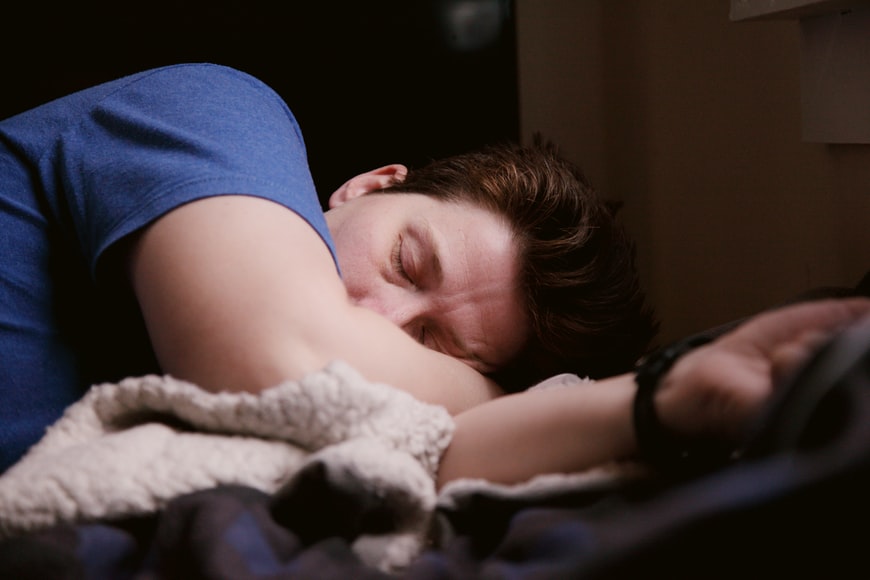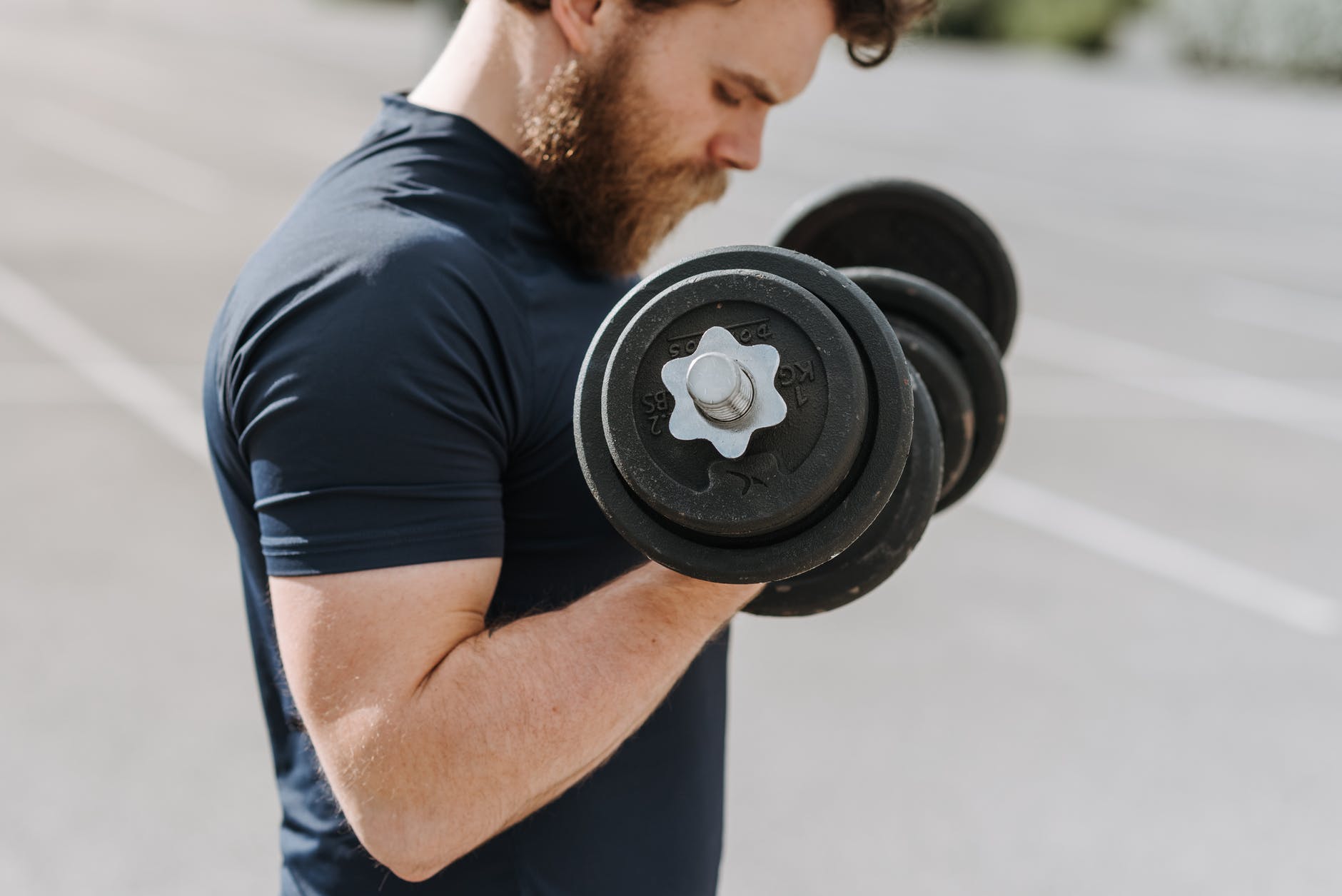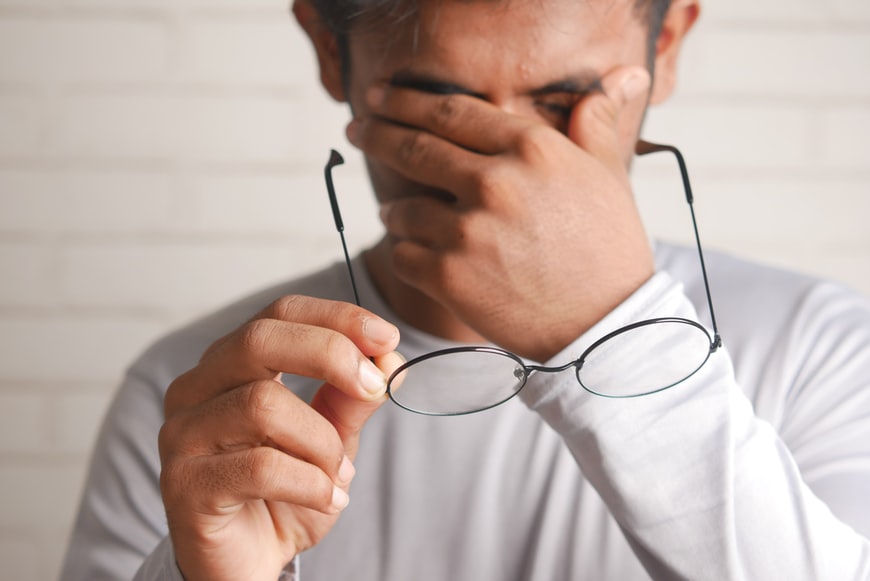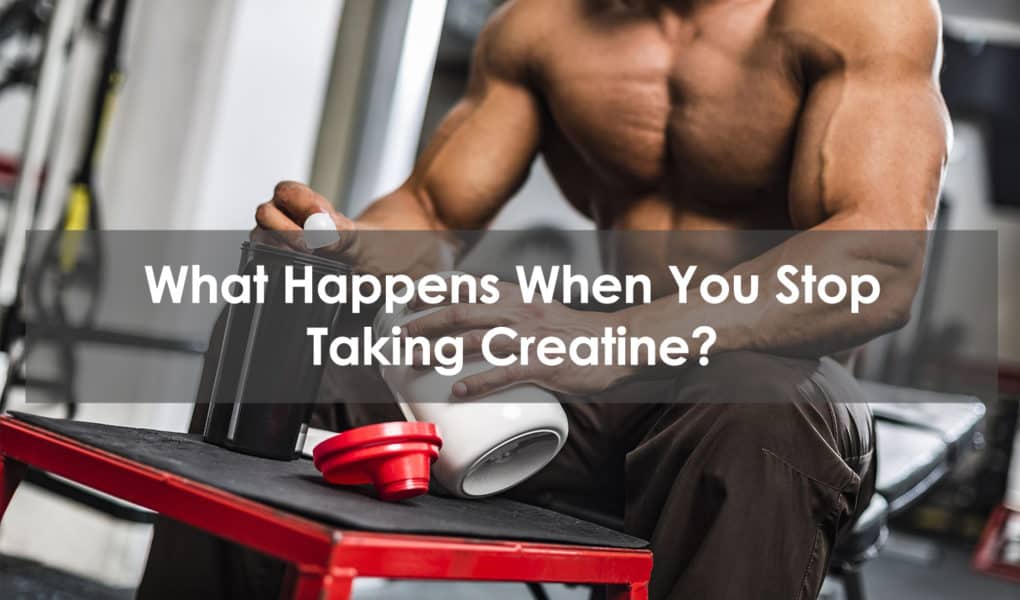When you stop taking creatine, your body’s stored creatine levels will go down. This may result in a loss of strength, reduced energy levels, and a slight loss of muscle mass.
Let’s drill down on exactly what happens to your body when you stop supplementing with creatine.
1. Fatigue

Stopping taking creatine will reduce all stores of creatine in your body. That includes the small amount that is stored in your brain. That store of creatine in the brain is involved in the body’s manufacture of neurotransmitters and hormones that are used in the energy process. So, when you lower those brain creatine levels, you will experience a lack of energy and an increase in fatigue levels resulting from the drop in creatine levels in the brain.
2. Lack of Strength
If you have been supplementing with common creatine for a couple of months and then go off, you will probably notice a decrease in muscle strength. This will be most noticeable in the number of reps you can perform with a certain weight. If you were able to get 10 reps with a certain weight while you were taking creatine, you will probably only be able to get 7 or 8 reps when you go off the supplement.
The reason for the drop-off in muscle strength that occurs when you go off creatine is because you no longer have a creatine phosphate store to draw upon when Adenosine Triphosphate (ATP) becomes Adenosine Diphosphate (ADP). That extra phosphate molecule is essential for continued anaerobic muscle exertion. This absence of creatine will lead to a decline in strength.
3. Loss of Muscle Size
You may experience a reduction in muscle mass when you stop taking creatine. Most of this will be water weight. Provided that you maintain your training routine and follow a high protein diet, you will not lose an appreciable amount of muscle mass. Any muscle that you do lose, will be regained within a few weeks.
4. Water Weight Loss
Creatine monohydrate has a water-storing effect on the body. This is a good thing if your goal is to build muscle as it makes your muscles look bigger and fuller. The effect of this water weight gain makes your muscles look bigger without actually adding muscle tissue (though creatine can also help you build muscle mass).
When you stop taking a creatine supplement, you will lose the water weight that is stored in your muscle cells. This will make your muscles look flatter and smaller. Depending on how long you have been taking creatine, you may lose as much as 7 pounds of muscle water weight when you stop taking creatine.
5. Harder Looking Muscles

While you will lose some size when you stop taking creatine, most of that will be water weight. If you are more interested in looking tight and ripped than massive, that is actually a good thing. The extra water that is infused into the skeletal muscle from creatine supplementation can make your muscles look soft and puffy.
When you go off creatine monohydrate, you will lose that water weight. This will make your muscles smaller but harder. Many people prefer this leaner, harder, grainier look than mere muscle size.
6. Lower Natural Creatine
Depending on how much creatine you have been taking and for how long, you may experience a suppression of your body’s natural creatine production when you stop taking creatine. Your body is able to compensate for the large amount of extra creatine that is coming into the body by reducing its natural creatine output.
When you stop taking creatine, it will take some time to get its natural production up to the pre-supplementation body creatine levels. As a result, you will be noticeably low on energy and strength until your body is able to build back to its normal levels. This may take up to a month.
7. Creatine Withdrawal Symptoms

Creatine monohydrate supplement withdrawal does exist, though it is nowhere near as bad as withdrawal from anabolic steroids or hard drugs. As a result of the reduction in the amounts of creatine levels in the brain, you may experience brain fog, loss of concentration, and feelings of lethargy.
These creatine withdrawal symptoms may last for as long as a week.
8. Reduced Training Energy

When you go off creatine supplementation, you will probably experience a reduced level of general training energy. This will be in addition to the reduction in strength that will occur. Whereas you were previously able to train for around an hour and a half, you will probably now find yourself running out of puff after about 45 minutes.
To compensate for this lack of training energy post creatine supplementation, you should reduce your workout sessions by about a third in the week after you stop taking creatine supplements. After about a week, your energy will return and you can go back to longer workouts.
Final Thoughts
When you stop taking a creatine monohydrate supplement, you will experience a notable drop off in your muscular strength and energy in the gym. You will also lose a little bit of muscle mass and some muscle water weight. In addition, there may be levels of brain fatigue.
Fortunately, these are temporary side effects. Within a couple of weeks, as your pre-supplementation creatine levels go back to normal, your performance will even itself out.
Frequently Asked Questions
How much creatine should you be taking?
The recommended dosage of creatine ingestion based on research is 5 grams per day. Do not take more than this or you may experience minor withdrawal symptoms such as headaches, nausea, loss of appetite, and stomach upset. Contrary to what many people think, you do not have to follow a creatine loading phase.
Should you stop taking creatine?
So long as you are sticking to the recommended dose of 5 grams of creatine per day, there is really no reason to stop taking creatine. The only reason that you would stop taking a supplement is that it suppresses the body’s natural release of that substance. This will not happen, though, if you stay within the recommended dosage.
Do I need to cycle creatine?
No, you do not need to do a creatine cycle. A creatine cycle is when you take a break from creatine for a period of time before resuming use. This is done to prevent the natural suppression of the body’s creatine production. However, as mentioned, your creatine intake should stay at 5 grams or less of creatine, so you will not suppress your natural levels of creatine.







